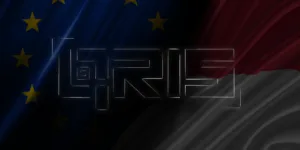Investigations into TIkTok and its parent company are underway as the EU steps up social media regulation.
Amid mounting regulatory pressure, TikTok braces for a tumultuous year in Europe as the European Union launches investigations into the social media giant’s activities under the Digital Services Act.
2024 will be another challenging year for TikTok and its European operations. On 17 February, the EU Commission announced that it had opened investigations into TikTok’s activities under the Digital Services Act (DSA), the bloc’s recently adopted law governing the conduct of social networks and other online platforms.
The formal proceedings come after months of informal dialogue between the platform and the EU regulator. The investigation of alleged misconduct will focus on breaches of transparency obligations and obligations to protect minors who use the social network.
Investigative foundations
The news of the investigation broke less than a week after the EU General Court dealt another blow to TikTok.
In September 2023, the EU Commission designated ByteDance, TikTok’s parent company, a “gatekeeper” under the Digital Markets Act (DMA). While ByteDance challenged the designation, in February, the EU General Court refused to grant its petition for interim measures, which would suspend the designation pending a final decision, thus forcing ByteDance to comply with the DMA’s rules, at least until the court gives its final decision that would annul the gatekeeper designation.
The DSA and DMA regulations were adopted in 2022 as part of the package to promote accountability and transparency of social media platforms, with the aim to improve market competitiveness and reduce space for illegal content sharing and information manipulation operations.
Under the twin regulations, TikTok/ByteDance must obtain consent before processing personal data for the sake of targeted advertising, not engage in anti-competitive behaviour, improve transparency of content moderation decisions, have a publicly available repository of advertisements and take measures to mitigate risks related to illegal content, protection of fundamental rights or integrity of electoral processes.
While both the DSA and DMA-related proceedings are far from their final outcome, they nevertheless highlight that the EU is increasingly serious about scrutinising ByteDance’s operations and TikTok’s impacts on the well-being of 134 million Europeans who use the app every month. In recent years, TikTok was used to spread disinformation about the Russian invasion of Ukraine, pro-China disinformation ahead of Taiwanese presidential elections and disinformation related to climate change.
The economic security rollercoaster
While the EU Commission is barking, can we expect it also to bite? Given its recently announced pledge to improve the bloc’s economic security capabilities, there is undoubtedly appetite to follow through with the DSA investigation.
Still, the final outcome will, to a large extent, also depend on the stance of the EU courts that have the jurisdiction to review Commission decisions and imposed fines (up to 6% of global turnover in case of DSA breaches). In this regard, the recent stances of the European Court of Justice (ECJ) on matters related to economic security left much to be desired.
In November 2022, the ECJ backtracked on the EU’s robust beneficial ownership transparency regime (Sovim case), which was established under the EU’s anti-money laundering laws. Following subsequent revelations, it emerged that the case had been brought to the attention of the ECJ by a Luxembourg citizen with business ties to Russian oligarchs. In July 2023, the judges took the indirect foreign investment (i.e., investment routed via an EU-based vehicle) out of the purview of the EU Investment Screening Mechanism (Xella case), thereby opening a significant loophole and undermining its overall effectiveness.
How the European courts deal with ByteDance’s challenge against the DMA “gatekeeper” designation will tell us a lot about how their thinking on economic security evolved (or not). Despite the EU’s gradual shift towards enhanced economic security, as evidenced by the 2023 European Economic Security Strategy, the ECJ’s decision-making has so far been guided by different principles.
In the Xella case, the court gave preference to upholding the EU’s fundamental economic freedoms over risks associated with corrosive capital influx, and the ECJ’s Sovim decision was guided by concerns over the privacy of European citizens. As the DMA and DSA regulations have precisely these principles at their core, there is a greater likelihood that the EU courts will side with the Commission over TikTok.
Not TikTok’s first rodeo
Still, the DSA and DMA proceedings are not TikTok’s first run-ins with the European Union.
Last year, the Irish Data Protection Commission fined TikTok 345 million euros over personal data protection violations related to child users. The EU also informally investigated the platform’s alleged breaches of consumer protection rules (the case was resolved by TikTok committing to making itself compliant with the EU law). Meanwhile, Czechia’s cybersecurity agency (NÚKIB) warned that it considers installing and using the TikTok app a high cybersecurity threat. In Slovakia, the Parliament banned the use of TikTok on official devices and parliamentary internet networks.
Further challenges loom on the horizon. In the US, national security investigations of TikTok are ongoing under the CFIUS, potentially facing a forced divestment of its US operations. US lawmakers are also urging the Department of Commerce to put ByteDance on the export control list, which would restrict its access to software developed by US tech companies. Investment screening and export controls are two areas where the EU aims to ramp up its economic security. This increases the likelihood of TikTok’s being scrutinised on national security grounds in the EU in the future.
With prospects like this, TikTok’s EU compliance team is bound to have its hands full through 2024.
The article was originally published by Visegrad Insight.







